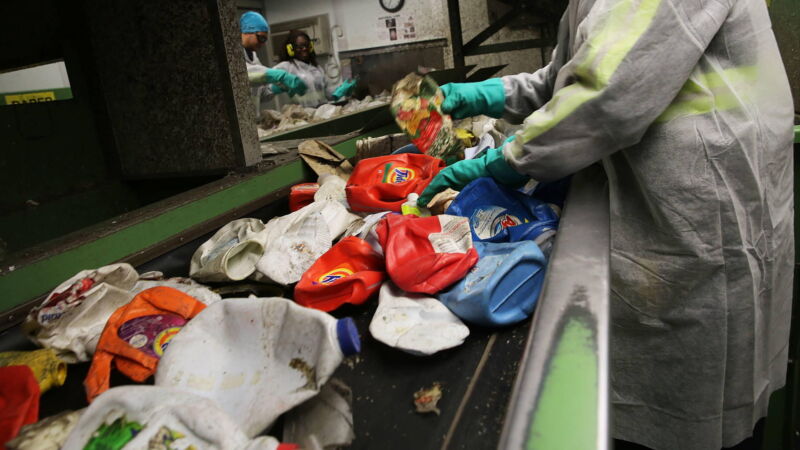-
 chevron_right
chevron_right
Your grocery bag might not have been recycled
news.movim.eu / ArsTechnica · Sunday, 26 March, 2023 - 11:08 · 1 minute

Enlarge / Recycling is sorted at the Sims Municipal Recycling Facility in New York City in 2015. (credit: Spencer Platt/Getty Images)
T o jumpstart a paltry market for recycled plastic, governments across the globe are pushing companies to include recycled materials in their products. Last year, the United Kingdom introduced a tax on manufacturers that produce or import plastic packaging containing less than 30 percent recycled plastic. In 2024, New Jersey will begin enforcing similar rules, albeit with lower targets. California now requires that beverage containers be made of 15 percent recycled materials, and Washington will enact a similar requirement later this year. The European Commission , Canada , and Mexico are all considering comparable moves.
Currently, most plastic products are derived from freshly extracted fossil fuels, including crude oil and natural gas. Incorporating some recycled plastic could reduce emissions, and shrink pollution in waterways and landfills, experts say. But collecting, sorting, pulverizing, and melting post-consumer plastics for reuse is expensive. The new laws will potentially help recyclers find buyers for what would otherwise become waste.
But regulators may need a better way to verify that the new laws are working. While companies can enlist a third-party to certify their use of recycled content, most certifiers take a bird’s-eye view, tracking the materials across a range of products and factories. As a result, an item with a “recycled content” label might be completely devoid of recycled content.

